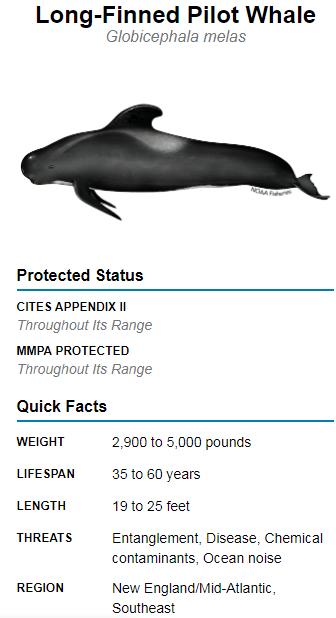Scores of pilot whales dead in New Zealand stranding
Mass stranding of Whales:
- The Chatham Islands was the site of New Zealand's largest recorded mass stranding, when 1,000 beached themselves in 1918
- Almost 100 pilot whales have died in a mass stranding on New Zealand's remote Chatham Islands.
Why do whales beach themselves?
- Whales are known to strand themselves on beaches across the world and they do so singularly or in groups.
- While individual strandings are mostly attributed to injury or sickness, it is not clear why exactly whales beach themselves in groups.
Theories explaining this behaviour
- The causes of mass strandings remain unknown despite scientists studying the phenomenon for decades. Theories include pod members following a sick leader ashore, shoreline geography that scrambles the animals' sonar, the presence of predators and extreme weather.
- Some whales follow schooling fish or other prey into shallow waters, which causes the whales to become disoriented, as a result of which they get stranded.
- Panic from being trapped by a predator such as killer whales or sharks.
- Whales might be drawn to land by prey-rich currents.
- Shape of the beach and the coastline could also have a role to play. For instance, if the beach has gently-sloping shorelines, whales that are dependent on echolocation for navigation can be deceived.
What happens when whales are stranded?
- The species that most often get stranded are those that use echolocation or sonar for navigation, such as pilot and sperm whales.
- Echolocation is a technique used by bats, dolphins and other animals to determine the location of objects using reflected sound. This allows the animals to move around in pitch darkness, so they can navigate, hunt, identify friends and enemies, and avoid obstacles.
- Most of the stranded whales appear to be dead. To save the ones that are still alive, rescue mission was carried to guide them back into the water.

Are such strandings common?
- Whale stranding is neither an uncommon nor a recent phenomenon.
- While dead individuals would naturally wash up ashore but mass beaching has baffled humans since at least 300 BC.
- Romans thought stranding was a whale’s punishment for offending Neptune, the god of the seas.
- Before this, the largest stranding that has occurred in Tasmania happened in 1935 when over 294 whales were stranded.
Long-finned pilot whales
- Long-finned pilot whales are very social, living in large schools of hundreds of animals separated into close-knit pods of 10 to 20 individuals.
- Long-finned pilot whales, like all marine mammals, are protected under the Marine Mammal Protection Act.
- The Marine Mammal Protection Act (MMPA) was the first act of the United States Congress to call specifically for an ecosystem approach to wildlife management.
- Long-finned pilot whales prefer deep temperate to subpolar oceanic waters
- This species has been described as "anti-tropical."






1.png)
